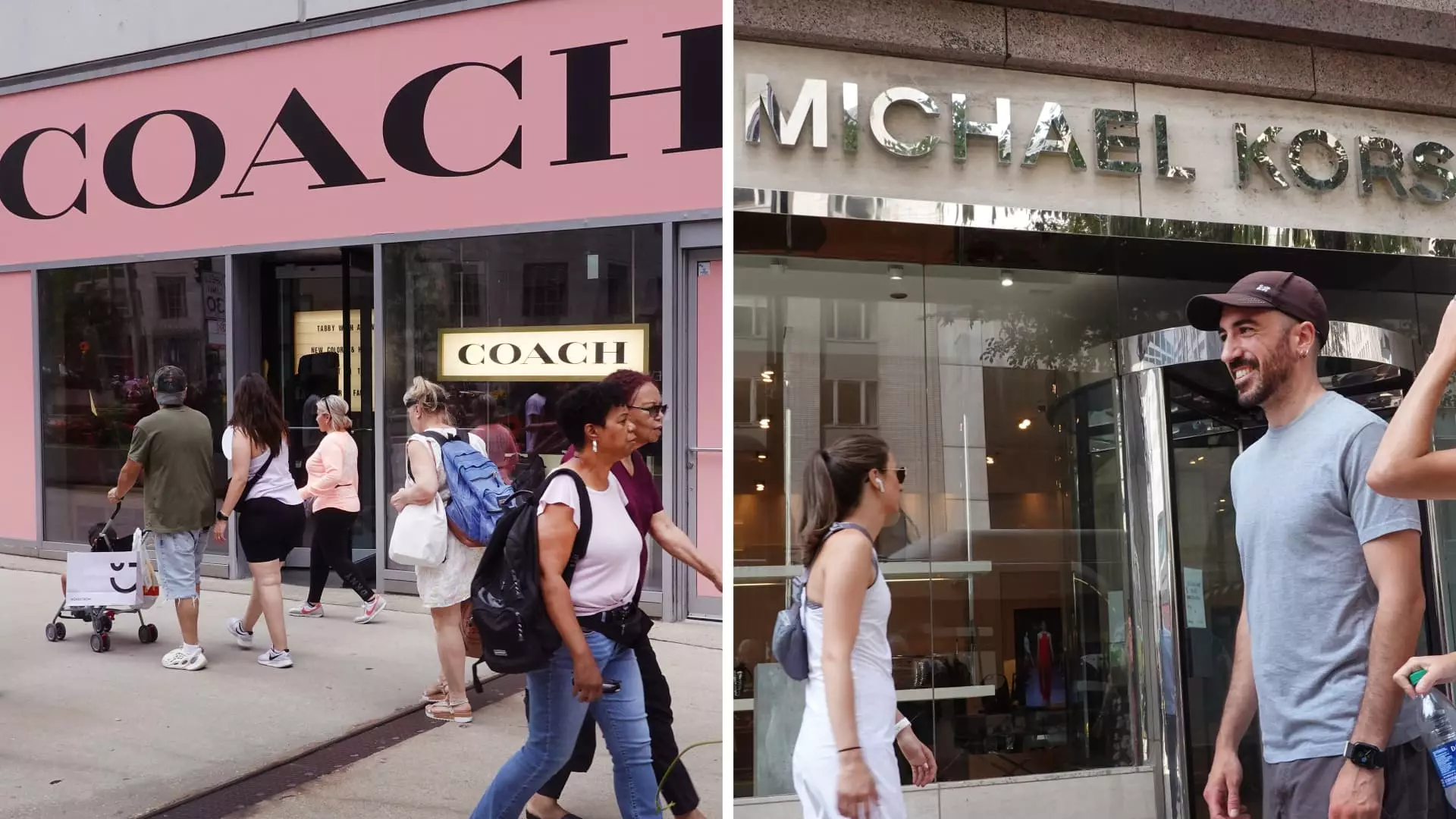The U.S. Federal Trade Commission took legal action on Monday to prevent the acquisition of Capri Holdings by Coach and Kate Spade’s parent company, Tapestry. This move by regulators has put a temporary halt to a deal that would join two significant names in American luxury retail and consolidate six fashion brands under one company.
The FTC has raised concerns about the negative impact of the merger on consumers and employees. According to the commission, the combined company would limit competition and harm consumers by reducing options for affordable handbags. Additionally, hourly workers could face disadvantages in terms of wages and workplace conditions.
Both Tapestry and Capri have argued against the FTC’s claims. They maintain that consumers have a wide variety of handbag choices across different price points and distribution channels. According to the companies, the competitive landscape in the luxury industry is dynamic and expansive, with Tapestry emphasizing the importance of reaching consumers who shop across various brands and price ranges.
Tapestry and Capri have expressed their intention to challenge the FTC’s decision in court. Tapestry has stated that it aims to finalize the acquisition by the end of 2024. The proposed merger was announced in August, with expectations of closing in 2024. While approval had been obtained from regulators in Europe and Japan, U.S. officials were yet to give their consent.
The combined companies of Tapestry and Capri would have a significant presence in the global luxury retail market, with over $12 billion in annual revenue and operations in more than 75 countries. Tapestry, under the leadership of CEO Joanne Crevoiserat, has focused on enhancing the Coach brand, attracting younger consumers, and prioritizing fashion and loyalty over discounts to drive sales growth. The majority of Tapestry’s sales come through its own stores and website, with wholesale transactions accounting for only a small portion of global sales.
Both Tapestry and Capri have faced challenges due to shifting consumer preferences and market conditions. Capri, in particular, has been more susceptible as it relies heavily on department stores and wholesale partners. Tapestry’s stock has shown resilience, with a nearly 10% increase in value so far this year, while Capri’s stock has dropped by around 24% over the same period.
The legal battle over the acquisition of Capri Holdings by Tapestry reflects the complexities of the luxury retail industry and the regulatory scrutiny that comes with major mergers. The outcome of this case will have implications for competition, consumer choice, and corporate strategies in the luxury fashion sector. Both companies are likely to continue their fight to proceed with the merger, but the final decision rests with the authorities and the courts.

